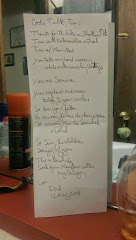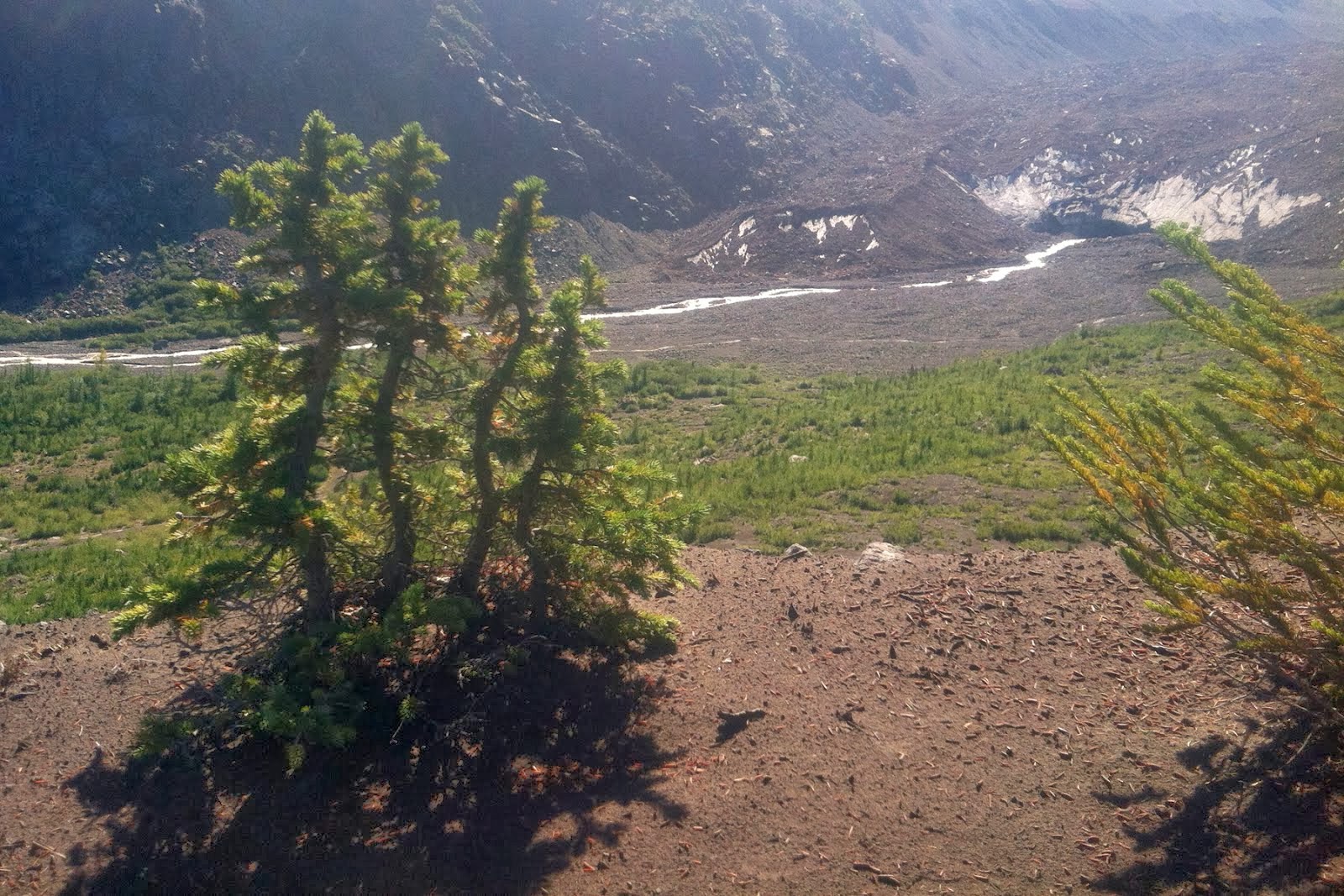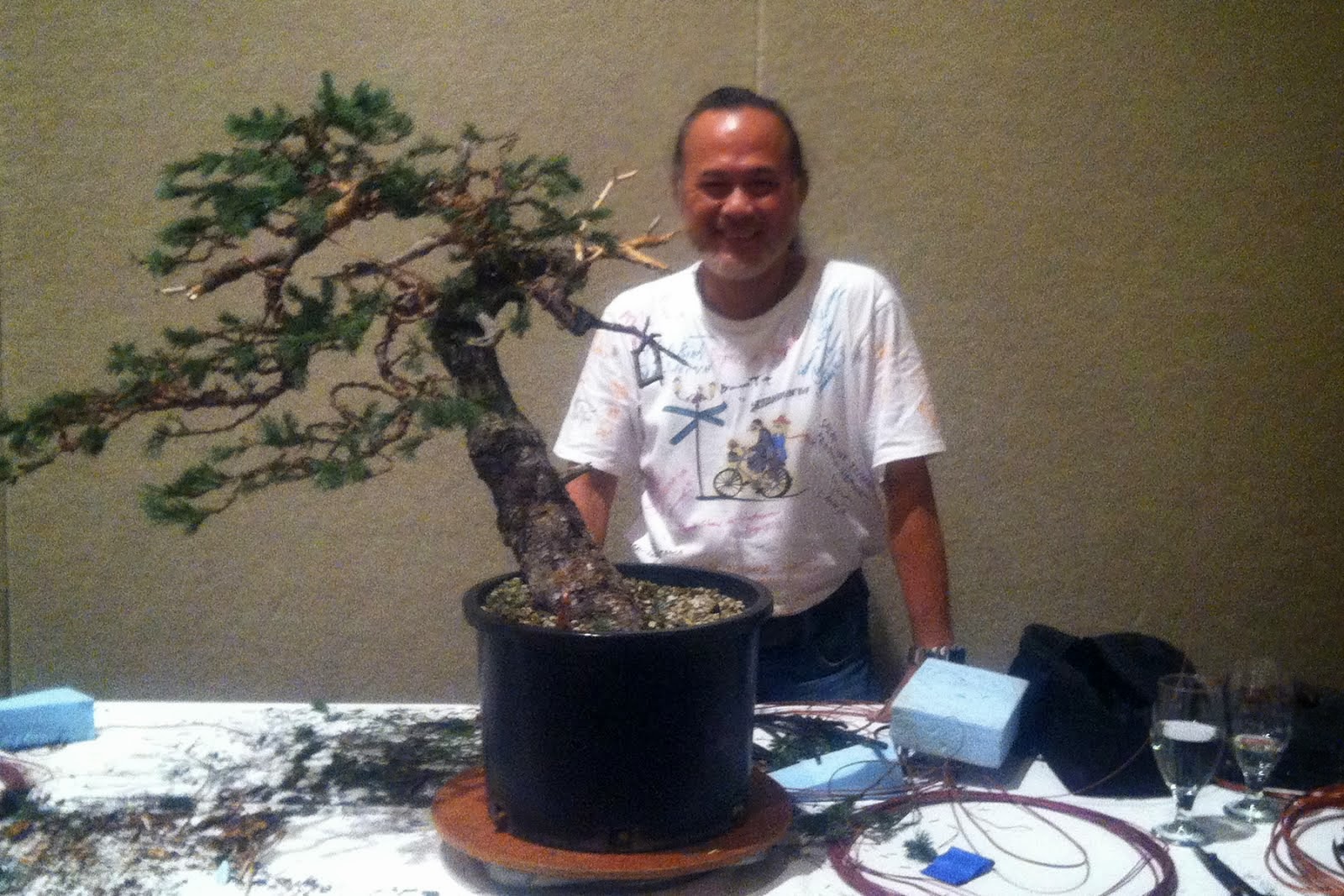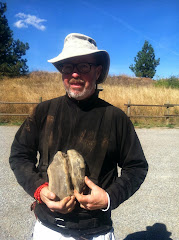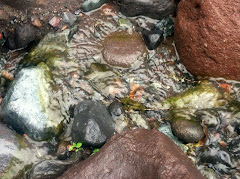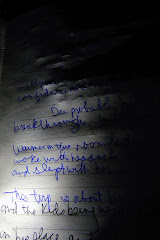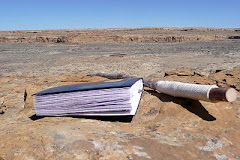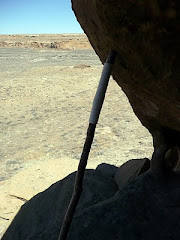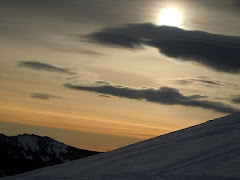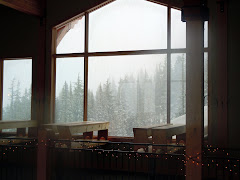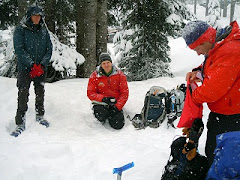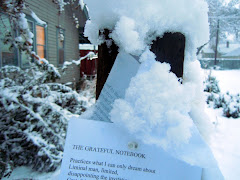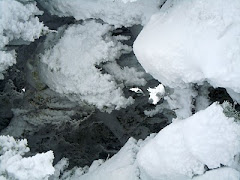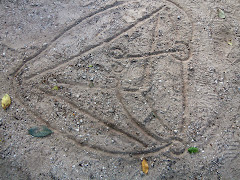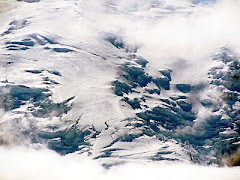STAR DUST ON MY FINGERTIPS: LETTER TO CYNTHIA MOE-LOBEDA
ON EVIL, LOVE, COMPLICITY, ETHICS, JUSTICE &
NEIGHBORS
—for my
brother, Chuck, and his wife, Lena Bodeen
“We, as every other thing, living and nonliving, are
offspring of the same parent that flared forth some 13.7 billion years ago in
the cosmic event known as the ‘big bang.’”
—Cynthia
Moe-Lobeda, Resisting Structural Evil: Love as Ecological Economic Vocation
1. The
Ministering Women
A little gold dust falls on us all.
This is the medicine of the women.
This is the medicine of the ministering women.
The medicine belongs to the vision quest of Crazy Horse
and the disappearance of his medicine bag.
The women are caring for one of their own.
They have taken on the cancer.
Ministers and distant cousins of the stars, sisters to
all,
they know what it is, the cancer.
This is their medicine.
They do not ask how it all turns out.
This, too, is their medicine, their practice.
They ask for no guarantees.
Who will accompany me to the river root
where rivers coalesce,
where fabric takes on texture,
where the singular disappears
in collective beginnings.
Medicine and the earth.
To whom does the earth turn for justice?
She is my sister, too, the dying woman.
This bowl of soup.
This inclusive medicine of the ministering women.
This single portion.
Help the man to the counter, to the stool.
Point to the spoon.
In the emergency room, family gathers around the bed.
This is the portion of the witness.
One of the gathered leaves the huddled talk
and goes to the dying woman,
and whispers, I love you.
The woman whispers back,
I love you, too.
This is the voice in the medicine bag,
confirmation and validation.
This is the understanding witness.
Hearing is the last sense to abandon the dying.
2. Healing and Resisting— Moe-Lobeda Books as
Bookends
Bookending a decade.
Globalization and God. Love as Ecological-Economic
Vocation.
Holding up your new book in the basement room,
the immigrant woman points, hand over her mouth,
and my wife exclaims, Kristen Gilje, the tree woman
on the cross from Holden Village. The painting hanging
in the isolated North Cascade Mountains blesses your
words,
makes you an intimate with the women. Subversives
dressed in art to wear. Ben Shahn’s Red Stairway
goes up and down, in and out of Hell
while women carry water in clay pots in cycles of
invisibility.
To abstract is to draw out the essence of a matter.
Separate fundamentals from irrelevant material.
The mayor says, Water for all.
The women say, Show us the faucets.
Democracy disabled. Be. Know. Do.
What happens when transnational corporations
are more powerful than your government.
The poem is the place where people may speak the
unspeakable.
You’re so good with Luther in the broken world.
Christ may be received only after the person
has utterly despaired of ability to justify self.
I’d forgotten your work with Luther and sin—
se incurvatus in se—self
turned in upon self—
talk about rusty tools! So sweet to read,
such heat from hot rocks. I carried you
in the blue book back to El Salvador,
carrying too, rural North Dakota roots,
invisible, still connected to the power source.
Hegemony is more Minnesota than North Dakota
as far as language goes, how one talks over coffee,
but we know what you’re talking about
when evils starts dressing up to look good.
I’d have to say, I’m part of that one.
Complicit? I love that part where you quote
Aida Hurtado and the good guys
having the gift of infinite goodness
because they never have to be personally bad.
That image of you at fourteen in Luther League
watching sugar cane workers in the Dominican Republic,
the best. If there’s a thread of greater vision
than America’s young, aghast, horrified,
watching a film, I’ve not seen it.
Sustaining, sustainable.
Here’s one back. A fourteen year-old girl
in our town, takes her laptop computer,
calls Alan Storey in Capetown,
brings him to Yakima two months later.
We have this room in the church basement.
We talk some. A listening place.
I’ve been talking about you for ten years.
The fourteen year-old’s mother says,
Cynthia is coming to Yakima.
Advance invitation, I guess, or warning.
3.
Q&A, Prójimo, Grammar: The Loving Resistors
The young man sits opposite me
writing in his notebook, as I am writing in mine.
Maybe he’s in his 20s, here with questions,
as you wind up your mud-song, earth-chant, economic love vocation,
a program with urgency ,
when his question arrives,
which you ask him to repeat.
What is
repentance?
Bless
your heart, you say, Bless your heart
for that beautiful question. Hold on.
If you’re not suffering it’s difficult to see.
It operates regardless—even when only the good are
involved.
This is structural evil.
Love makers—Our God is at play in the world. Making love.
There are 25 million climate refugees in the world.
What does it mean for the people here gathered?
Heeding our call to love requires high stakes.
Step with me in courage.
Through climate change we are doing un-creating.
We are a dangerous species.
Resistance is one of the doorways to moral power.
Failure to repent is our failure to see.
Repentance is the other doorway.
[At this point the question arrives.]
What is
repentance?
Beautiful, beautiful question.
A reduced understanding of sin means a truncated vision
of salvation.
It’s ability to hide confirms its wickedness.
Repentance calls for fields of literacy in that sin.
Lifestyle changes in housing and eating and travel.
Responsible buying and investing.
Alternative sources for news.
Whose vision of the world is to be told?
These are some of the tools of the unraveling.
None of us is primarily an I.
We are, in fact, first, we.
Thank all of those who enable you to be here now.
All of those living inside your tear ducts.
We are a cloud of witnesses,
wide-spread, burgeoning.
A movement.
These, your forms of action, loving resistors.
Thirty years ago I sat with a young man on my porch.
Usted es mi prójimo, he said.
Mi prójimo.
Para nosotros, para los mexicanos no hay palabra más
grande,
más fuerte, más importante. Prójimo.
His description and eloquence,
the openness and depth of his heart
made it too large for me to see.
I was his teacher at the time.
A young man, too.
He was a wrestler, a luchador,
another word he taught me to see and to know.
He would teach me about the asparagus fields.
Already a teacher cutting asparagus.
He put the asparagus knife in my hand.
He would exceed his own dreams
stepping out of strawberry fields
into multiple worlds of many languages.
But that day he walked me next door,
and knocked. When my neighbor came to the door,
he said, Aquí, Él es su prójimo.
Here is your neighbor.
The beautiful question stands before two doorways.
Cynthia Moe-Lobeda will say all is neighbor, including
otherkind.
Sort that one out for yourself.
One can’t know what the young man heard.
What went into his notebook.
Because the question is mine, too,
I don’t get it all.
The surprise seeds itself—into the indicative,
away from the imperative. No world of shoulds
in the mouth of Jesus.
You write in the coffee shop,
one of the ministering women.
You shall love your neighbor as yourself. Agapao.
Finishing like this:
You have the power. You’re not being told to.
Already part of your divinity.
Jim Bodeen
25 September—21 October 2014
Pacific Lutheran University/Yakima, WA





